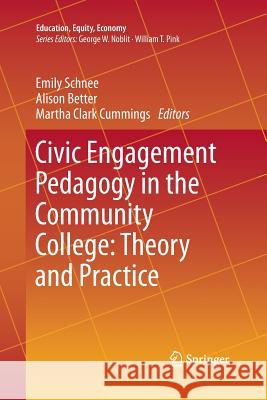Civic Engagement Pedagogy in the Community College: Theory and Practice » książka
topmenu
Civic Engagement Pedagogy in the Community College: Theory and Practice
ISBN-13: 9783319363103 / Angielski / Miękka / 2016 / 268 str.
Kategorie:
Kategorie BISAC:
Wydawca:
Springer
Seria wydawnicza:
Język:
Angielski
ISBN-13:
9783319363103
Rok wydania:
2016
Wydanie:
Softcover Repri
Ilość stron:
268
Waga:
0.41 kg
Wymiary:
23.39 x 15.6 x 1.55
Oprawa:
Miękka
Wolumenów:
01
Dodatkowe informacje:
Wydanie ilustrowane











